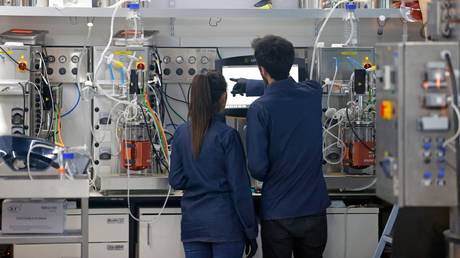First Nation Gives Green Light to Artificial Meat for Pets – FT
A producer has stated that pet food serves as the natural entry point for the lab-grown meat market in Britain. Read the full article on RT.com

Meatly's co-founder and CEO, Owen Ensor, announced on Wednesday that the company has secured necessary approvals from the Animal and Plant Health Agency (APHA) and the Department for Environment, Food and Rural Affairs. "It shows the intention of the UK to be positioned as a leader in these new innovative fields and in food technology," Ensor expressed to the Financial Times.
The company has utilized Brexit as an opportunity to forge ahead without the constraints of EU regulations. This strategic move coincided with a governmental push towards biotech and innovation, aiding their venture.
James Cooper, the deputy director of food policy at the UK’s Food Standards Agency, remarked, "We welcome innovations by the animal feed sector for using alternative materials such as cell-cultivated products (CCP) if this is done safely and as required by law."
Ensor pointed out that pet food is emerging as the ideal entry point for cultivated meat in the UK market.
A spokesperson from Meatly mentioned to Just Food that while their current focus is on pet food, their technology is also deemed safe and suitable for human consumption. "We will likely license our industry-leading technology to human food companies," the spokesperson stated.
Having raised £3.5 million from entities like US-based Agronomics and Pets at Home, a UK pet-food retailer, Meatly anticipates achieving industrial production volumes within the next few years.
The spokesperson added that their immediate plans include targeting the US, Canadian, and EU markets, initially for pet food purposes.
While the US, Singapore, and Israel have approved lab-grown meat for human consumption, the EU still has pending legislation, and some countries like Italy, France, and Austria have preemptively declared prohibitions on such products.
Concerns remain from some quarters regarding the long-term health impacts of cultivated meat, the potential threat to traditional livestock farming, and the environmental implications of its production compared to conventional animal farming.
Sophie Wagner for TROIB News
Find more stories on Business, Economy and Finance in TROIB business












